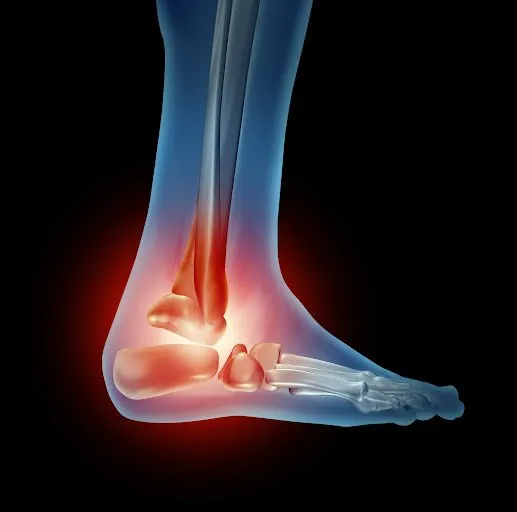Excellence in Rheumatology Care since 1977. Accepting New Patients
Nov 30, 2021
Joint trouble can stem from many chronic conditions, including lupus. This inflammatory disorder creates a wide range of debilitating symptoms, including joint pain and swelling that resembles rheumatoid arthritis. An estimated 1.5 million Americans struggle with some form of lupus.
If you must cope with joint pain alongside other annoying lupus-related health issues, cultivate a basic understanding of this complex, somewhat mysterious disease. Bring yourself up to speed on the subject by examining the answers to these frequently asked questions about lupus.
What Does Lupus Involve?
Lupus involves an autoimmune system malfunction in which the body’s immune system attacks healthy tissues instead of going after disease germs. This sustained attack produces both chronic inflammation and healthy cell destruction.
Lupus can take a few different primary forms. Systemic lupus erythematosus (SLE) is the most common of these, affecting some 70 percent of lupus patients. This form of lupus can cause inflammation and tissue damage in the joints, but it may also affect the tissues of the eyes, skin, brain, or kidneys.
Drug-induced lupus behaves much like SLE, except that the symptoms tend to resolve themselves after you discontinue the drug that triggers the problem. Infants can develop systemic problems from neonatal lupus and then recover spontaneously in a matter of months. Some individuals develop cutaneous lupus affecting only the skin.
What Symptoms and Problems Can Lupus Cause?
The symptoms you might experience from lupus will depend in part on what type of lupus you face. As a systemic problem, SLE produces the widest range of lupus symptoms. In addition to joint pain and swelling, you may develop skin rashes, breathing or cognitive difficulties, headaches, fever, fatigue, and chronic dry mouth or eyes.
A serious case of untreated lupus can lead to various health complications. For instance, chronic, recurring kidney inflammation can damage these organs until a condition called lupus nephritis threatens kidney failure. Other complications may include blood clots, anemia, heart disease, and lung damage.
Why Do People Suffer From Lupus?
Researchers still struggle to understand exactly why people get lupus. An individual’s genetic makeup can set the stage for the condition, since more than 50 different genes appear to play contributing roles in lupus development. Ethnic background and a family history of auto immune diseases may also contribute.
Even in the presence of genetic or family-based risk factors, researchers believe that environmental agents usually trigger a case of lupus. Drugs that can trigger lupus include several kinds of antibiotics, including penicillin, tetracycline, and sulfa drugs. Ultraviolet radiation, stress, hormonal changes, and trauma can also trigger lupus.
How Can a Rheumatologist Help You Cope With Lupus?
Unfortunately, current science cannot offer an out right cure for lupus. However, a skilled rheumatologist can still help you get the condition under control, easing your symptoms and reducing the risks of long-term complications from organ damage.
Lupus can prove difficult to diagnose because so many other common joint disorders and systemic diseases share its symptoms. Your rheumatologist must consider your medical and family history, genetics, current medication use, and symptoms. Blood, urine, and skin sample testing can help confirm the diagnosis.
If your rheumatologist diagnoses you with lupus, your condition may respond well to certain drugs that reduce joint swelling and pain. If non-steroidal anti-inflammatory drugs don’t do the trick, you may receive a prescription for corticosteroids, antimalarial drugs (which can curb symptom flare-ups), or immune system suppressants.
Changes in diet may also help you manage your lupus symptoms. Common recommendations include a diet featuring fatty fish (or other sources of omega-3 fatty acids), whole grains, antioxidant-rich fruits and vegetables, and foods that offer plenty of calcium.
Sarasota Arthritis Center diagnoses and treats lupus in addition to other inflammatory and degenerative joint conditions. Contact our office to schedule an appointment so we can evaluate your symptoms, pinpoint their cause, and prescribe the appropriate treatment measures to help you manage your pain.

What You Should Know About Sjogren’s Syndrome
Almost no one enjoys coping with the occasional dry mouth or dry eyes, natural consequences of arid environments, certain medications, or temporary dehydration from not drinking enough water.

Winter Weather and Arthritis: 4 Key Considerations
Individuals who suffer from arthritis must often think about aspects of their everyday lives that those with healthier joints can take for granted, including the change of seasons.

Infusion Therapy for Arthritis: 3 Key Points
Arthritis can take many forms, from the targeted joint degeneration commonly seen in osteoarthritis to inflammatory conditions such as rheumatoid arthritis, reactive arthritis, gout, and psoriatic arthritis.



We are able to see patients by appointment only. If you need to cancel an appointment, please contact our office at least 24 hours in advance. To expedite the check-in process prior to your appointment, please complete the pre-registration paperwork that will be emailed and texted to you through Phreesia. Please bring your insurance cards, method of payment, and identification with you to every appointment.